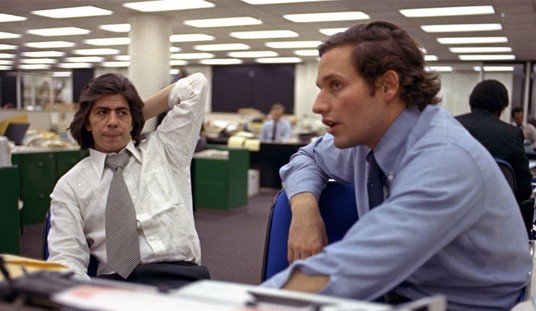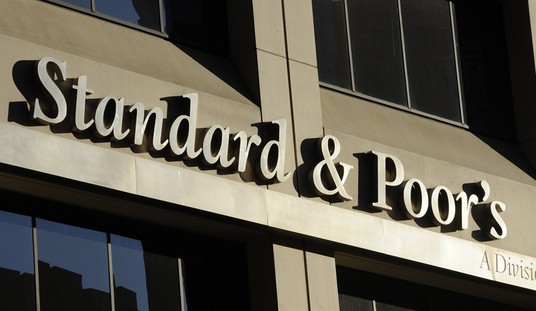It’s verrrrry hard to understand why a public health bureau fighting a pandemic wouldn’t want every last bit of information it can glean from people who are infected. More knowledge means better detection, which means a more nimble response to isolating developing hot spots.
And it’s verrrrry suspicious that this willful blindness is occurring in the broader context of left-wing politicians applying a brazen, politically motivated double standard about which mass gatherings are justified and which aren’t.
If I were a cynic, I’d suspect that the city doesn’t want evidence that transmissions are happening at anti-racist protests because they fear it’s true. If contact tracers don’t bother gathering information about the protests then any rise in cases in NYC in the coming weeks can (and will) be blamed on businesses reopening. If they do gather evidence proving that the protests were responsible, the protests — and potentially their cause — might draw a backlash. Forced to choose between good science and political orthodoxy, the city has made its choice.
Come to think of it, I am a cynic:
The hundreds of contact tracing workers hired by the city under de Blasio’s new “test and trace” campaign have been instructed not to ask anyone who’s tested positive for COVID-19 whether they recently attended a demonstration, City Hall confirmed to THE CITY.
“No person will be asked proactively if they attended a protest,” Avery Cohen, a spokesperson for de Blasio, wrote in an emailed response to questions by THE CITY…
There’s no direct effort to resolve a question both de Blasio and Gov. Andrew Cuomo have asked repeatedly since the demonstrations against police brutality erupted following the death of George Floyd at the hands of Minneapolis police: Are the protests helping spread the virus?
“That’s the one variable in this equation that we’re not sure of: We don’t know what the effect of those protests are,” Cuomo said last week.
By Cuomo’s own admission, the effect of the protests on transmission is the singular blind spot that health officials in New York are coping with right now. And rather than try to cure it, they’re willing to preserve it. Add this to the long and still-growing list of garbage policy decisions by the state and city that made New York’s coronavirus response much worse than it needed to be.
City officials note in their defense that people interviewed by contact tracers are free to volunteer that they attended a protest. And some of the general questions they’re being asked — e.g., have you been within six feet of a particular person for 10 minutes over the last few weeks? — should lead them to answer with the names of friends whom they were with while protesting. But not everyone will volunteer the information. And without knowing that a chain of transmission happened at a protest, specifically, authorities can’t warn strangers who might have been exposed. For instance, imagine if they were able to piece together that a cluster of infections originated at a particular street or in a particular area of a mass demonstration. The general public could be alerted, with those who attended the protest and were in that area encouraged to come forward and get tested.
The strongest argument against asking people if they’ve attended a protest is that some might grow suspicious of the motives of city officials in wanting to know that they were out demonstrating against police brutality. “[C]ontact tracing requires a strong level of trust between the interviewer and the person they’re talking to,” said one expert to The City. Right, but the urgency in knowing whether the protests are vectors of transmission should trump that concern. The worst that can happen if you ask someone if they’ve attended a protest lately is that they lie or refuse to answer. Most will probably tell the truth since everyone understands the health risk involved at this point; witness how many demonstrators have been wearing masks while marching. If the protests are driving outbreaks, the public needs to know that immediately so that they can avoid further exposure or at least change their protest tactics to avoid the sort of ominous density that was seen last night in Brooklyn:
The #BlackTransLivesMatter protest in Brooklyn right now is stunning. pic.twitter.com/glDticAc4o
— Joshua Potash (@JoshuaPotash) June 14, 2020
On the other hand, it’s an open question at this point whether people in New York or elsewhere actually would adjust their behavior if contact tracers provided that the protests are driving infections. It’s perfectly clear by now that early reopening in states like Texas and Arizona has led to worsening epidemics in those states, yet social media was teeming this weekend with anecdotal reports from across the country of people carrying on as if there were no virus. Some New Yorkers are letting it all hang out — literally:
Central Park sunbathers skip masks — and pants — in coronavirus defiance https://t.co/jyFaDL6hZI pic.twitter.com/lT5A5GIrMc
— New York Post (@nypost) June 15, 2020
Cuomo threatened to start locking things down again after the state received more than 25,000(!) complaints of businesses violating social-distancing rules in serving customers, but he’s kidding himself. The public won’t stand for it. The double standard is too glaring. Some business owners and consumers will ignore him, and if he’s heavy-handed about forcing closures, the voters will turn on him. A embarrassingly large and stupid chunk of our national population has decided that the end of lockdowns means the end of most precautions against infection too. The only thing that’s going to affect their calculus is a new wave of the disease.
Which, ironically, the City’s contact tracers are enabling by not arming themselves with all available information from patients to try to contain the virus.
I’ll leave you with this, a fun little candygram reminder of just how terrible New York’s political leadership is.
.@NYCMayor said several weeks ago he'd get tested for COVID, but still hasn't and now he's out sick. He doesn't believe he has COVID per @FreddiGoldstein because of his symptoms and is not planning on getting tested.
— Julia ON MATERNITY LEAVE Marsh (@juliakmarsh) June 15, 2020








Join the conversation as a VIP Member